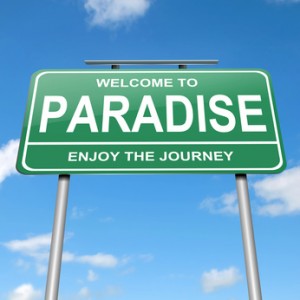 In a recent piece written for the Huffington Post, theologian Stephen Phelps argues that the US political system is gridlocked over climate change due to “a confusion of climate change denial with so-called conservative values.” In order to help people pull their heads out of the tar sands, Phelps seeks to establish how the term “conservative” has been distorted over time.
In a recent piece written for the Huffington Post, theologian Stephen Phelps argues that the US political system is gridlocked over climate change due to “a confusion of climate change denial with so-called conservative values.” In order to help people pull their heads out of the tar sands, Phelps seeks to establish how the term “conservative” has been distorted over time.
From the beginning of the Industrial Revolution to the 1960s, “conservatives” were those who regarded with deep skepticism humans’ powers to do good. Their religiously inflected worldview saw all institutions as prone to error, so conservatives naturally sought to limit the power of governments. But they were consistent. They knew that all unruly desires needed to be regulated — a factory owner’s as much as a government’s.
These days, however,
Political conservatives today are not at all conservative. They are radical utopians who treat corporations and their owners as if greed had been bred out of them. Government regulation only hinders the good they can accomplish. As for evil, only others — foreign or political — are prone to it… If people suffer from market forces, well, that is how the strong guide the weak.
A couple of things about his comments concern me.
First of all, Phelps seems to lack the very sense of balance he lauds in conservatives of days gone by. He may be right that today’s conservatives place too much trust in big business and the myth of the self-made person, but you could just as well argue that people like Phelps place too much trust in government’s ability to cure society’s ills. As Phelps’ early conservatives realized, politicians and governments can be just as shortsighted and self-interested as the corporate entities and business owners Phelps opposes, so why he would accuse only one end of the political spectrum of being radical utopians is a mystery to me.
If anyone is guilty of trying to sell a utopian vision, it’s the anti-fossil fuel industry (a.k.a the environmentalist movement), which consistently seeks to make us believe we can have all the benefits of fossil fuels without any of the associated costs. I’m certainly open to discussions about the proposed costs/benefits of any and every form of energy, but no matter what form of energy you choose, for every upside, you are going to have a downside. To believe anything else is to live in denial of reality. As a case in point, a number of news reports have cropped up recently detailing how solar thermal plants are igniting birds in mid-flight. So rather than demonize fossil fuels and those who produce them, as if they are somehow singularly evil, we need to step back, take a deep breath, and look at the social, environmental and economic costs and benefits of every form of energy and then seek to make informed decisions from there. Otherwise our well-intentioned search for alternatives could merely wind up making a bad situation worse.
However, such rational discourse about energy or any other topic is virtually impossible if we’re pursuing a utopian vision. And let’s face it; we’re all pursuing a utopian vision of some sort, whether we label ourselves liberal, conservative or something in between. At one time or another, we all find ourselves saying, “If only others would think and act as I do, all would be well.” If that’s not utopian thinking, I don’t know what is.
Furthermore, when we encounter those who don’t see what we see, believe what we believe, or act as we act, we assume they are somehow blind (e.g. “The fact of climate change makes real conservatives of all who are not blind.”), because for those who are pure of heart, as we are, the moral superiority of our position is self-evident.
Assuming the problem is merely ignorance, we attempt to educate our opponents. When that fails, we imagine some sort of malicious intent on their part. Purposeful ignorance, perhaps. Our opponents know what we know, but they choose to ignore or suppress that knowledge in favor of their self-interest. To quote Phelps again, we come to believe that, “As for evil, only others… are prone to it.” Then we retreat into our enclaves and rant about how ignorant, destructive and, let’s say it like it is, evil those other people are. After all, not only are they standing between us and our utopian vision, they’re doing it on purpose. That’s why we need the government to compel people to act in their/our best interest, because, apparently, we are incapable of doing so on our own (apart from the enlightened few). It’s nothing but a secular, Gnostic version of the doctrine of Original Sin.
No matter who is calling the shots, both big government and big business allow for limited participation on the part of average citizens, either as voters or as consumers. Alexis de Tocqueville said, “In a democracy, the people get the government they deserve.” Well, in a capitalist society, consumers get the companies they deserve as well. So in either case, as individuals, we have a lot more power than we think. To put this in practical terms, all it takes is one news story about child labor in its supply chain to make Apple, one of the most powerful companies in the world, change its business practices practically overnight. In this sense, you could say we have even more power—and more immediate power—when big business is calling the shots, because they are as reliant on our money as we are on their products. Anyone who has had anything to do with the government at any level knows that exactly the opposite is true when it comes to their responsiveness to change. If and when change ever happens, it is glacial at best and typically post-hoc rather than prescient or preemptive. If anything, it’s big business that has the corner on innovation, efficiency and forward thinking.
That said, like different forms of energy, both governments and corporations come with their share of costs and benefits. So rather than write off one or the other as inherently evil, I prefer the perspective of Walter Wink, who said, “The powers are good, the powers are fallen, the powers can be redeemed.”
I appreciate Phelps’ call to environmental responsibility no matter our political beliefs. But I don’t have much confidence in his ability to win any converts to his moral crusade, at least not until he is willing to stop scapegoating those who don’t subscribe to his utopian vision. In other words, until it ceases to be a moral crusade. Otherwise, for Phelps, the real problem will always be “out there.” It will never be our fault; it will always be caused by them. And as long as they are the problem, all I have to do is stand here and point the finger until somebody does something to clean up this mess.










